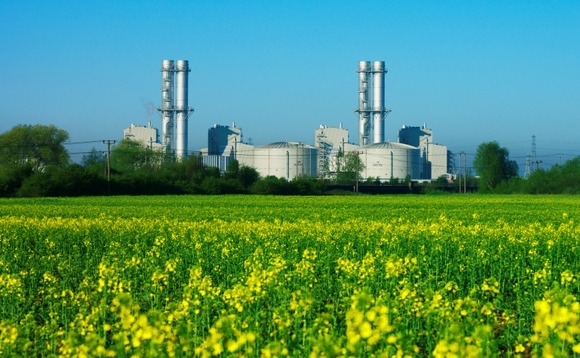
Energy giant announces sweeping plan to re-purpose former power stations as CCS sites and deliver new Stallingborough project
RWE has announced plans to explore options to develop three new carbon capture and storage (CCS) projects in the UK, which it has estimated could provide up to 4.7GW of low carbon power and capture 11 million tonnes of CO2 per year.
The company revealed it is currently testing the feasibility of options to retrofit carbon capture technology at its existing combined cycle gas power stations at Pembroke and Staythorpe.
It is also confirmed proposals for a new carbon-capture, gas-fired power station at Stallingborough, close to the Humber Estuary, which could provide enough power for one million homes.
RWE said it believes CCS is a viable solution for delivering "decarbonised, reliable and dispatchable power generation, whilst supporting the UK's target of decarbonising its power system by 2035".
The company added that it considers the three projects to be key to both the UK's long-term energy security, as well as its plans to become a carbon neutral company by 2040 in line with the goals of the Paris Agreement.
"In order to decarbonise the power sector, support security of supply and enable large scale industrial decarbonisation, it is important that clean gas generation projects are developed," said Tom Glover, UK Country Chair for RWE.
"Carbon capture can support the expansion of the other renewable and low carbon technologies that RWE is a leader in deploying, by providing energy security through firm and flexible provision of electricity that is not reliant on weather. I am pleased to announce our plans for three UK carbon capture projects, representing an important step in our progression towards decarbonising our existing gas fleet."
RWE said the new projects would form "an important part of a robust and comprehensive energy network which ensures that the UK has a stable and secure generation wherever it is needed".
When complete, the company estimated that the projects could produce as much as 4.7 GW of power, which could be enough to provide 8.1 million UK homes with electricity.
In terms of carbon savings, RWE has estimated the fleet could capture as much as 11 million tonnes of CO2 per year, which would be the same as removing 2.2 million petrol cars from the road.
In addition, all three projects are close to proposed CO2 networks or will have access to shipping facilities, which RWE said would enable the CO2 to be safely transported and stored by third parties.
RWE added that it has developed partnerships with a number of low carbon industrial clusters, including the South Wales Industrial Cluster (SWIC) and Viking carbon capture and storage in order to develop transportation and storage options of the captured CO2.
Thecpompany said it is now preparing to submit the projects to the Department for Energy Security and Net Zero's Track 2 Phase 2 cluster sequencing funding application process, which is dedicated to carbon capture projects in close proximity with carbon capture storage or transport facilities.
The projects are the latest in a growing pipeline of UK CCS projects that aim to capture carbon from power plants and industrial sites for storage in geological formations under the North Sea.
The government has earmarked £20bn of funding over the next 20 years to support the development of such projects and last week announced the award of the first wave of licenses for prospective CO2 storage sites.
However, developers have repeatedly called on the government to accelerate efforts to finalise the subsidy mechanism and regulatory regime that will enable the first wave of projects, warning that they will only be able to reach final investment decisions once the policy framework is finalised. Meanwhile, the US and EU have both announced plans to ramp up support for new CCS projects, leading to increased pressure on the UK government to finalise its plans.
In related news, biomass energy giant Drax today announced plans to develop over 20 million tonnes of carbon removal capacity through a portfolio of biomass energy with carbon capture and storage (BECCS) plants by 2030, including two new sites in the US that it said could deliver around six million tonnes of capacity.
The company - which recently failed to make the cut for support through the UK government's first round of CCS projects but remains in talks with Ministers and officials - said it was also evaluating nine additional sites in US for greenfield and brownfield BECCS projects and plans to establish a HQ for Global BECCS in Houston, Texas.
However, it also stressed it was still targeting the delivery ofeight million tonnes of carbon capture capacity at its Drax Power Station in the UK by 2030.
"Drax is a growing and sustainable, international business providing flexible, renewable energy and carbon removals solutions, via BECCS, which put us at the heart of global efforts to deliver net zero and energy security," said CEO Will Gardiner. "Our plans to invest billions in critical renewable energy and carbon removal technologies will help to tackle the climate crisis and could create thousands of jobs whilst generating secure, renewable power. This investment is underpinned by our strong operational performance."
However, the company remains controversial in some quarters with environmental activists alleging it benefits from significant subsidies and relies on biomass feedstocks with questionable sustainability credentials - accusations the company has repeatedly rejected.